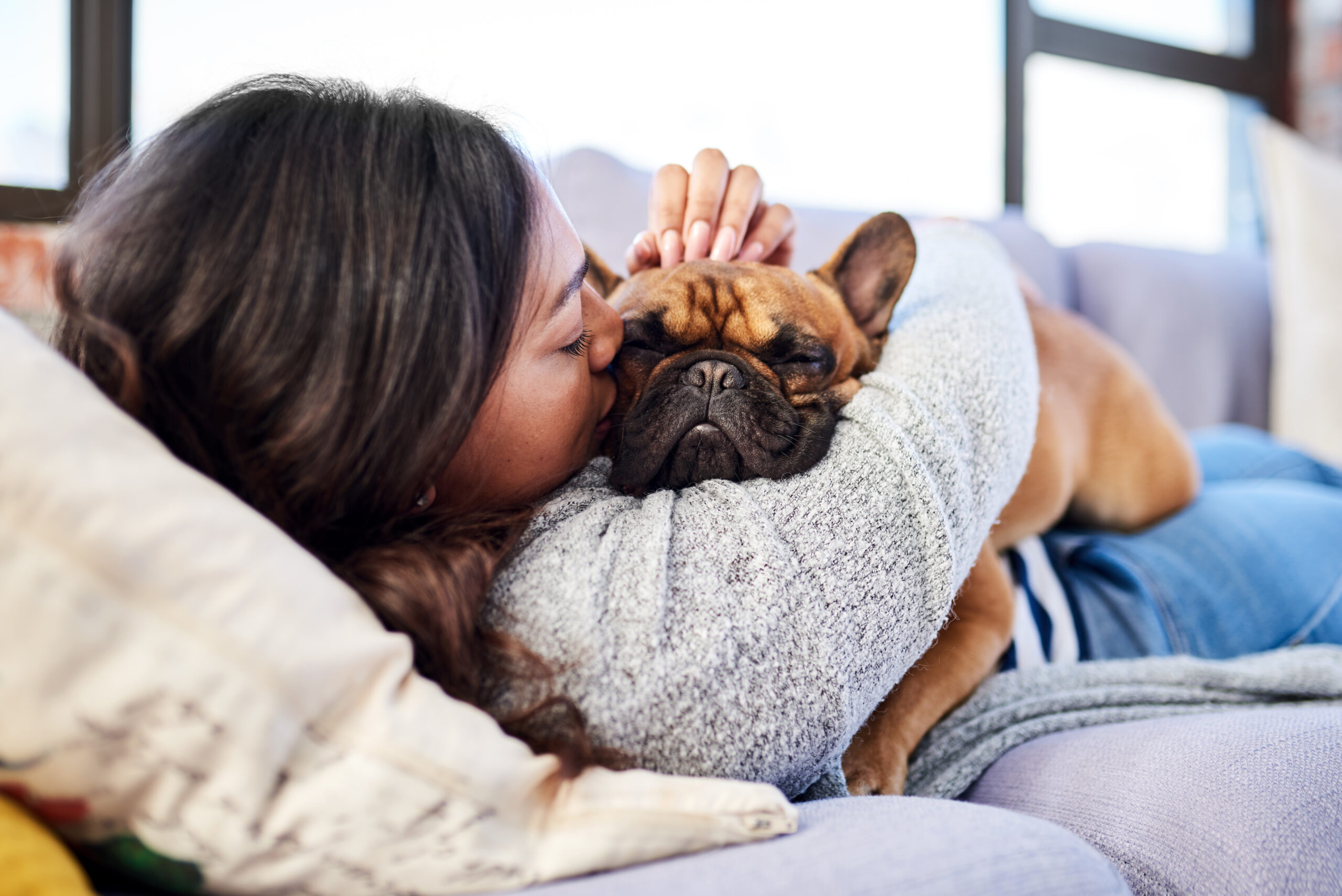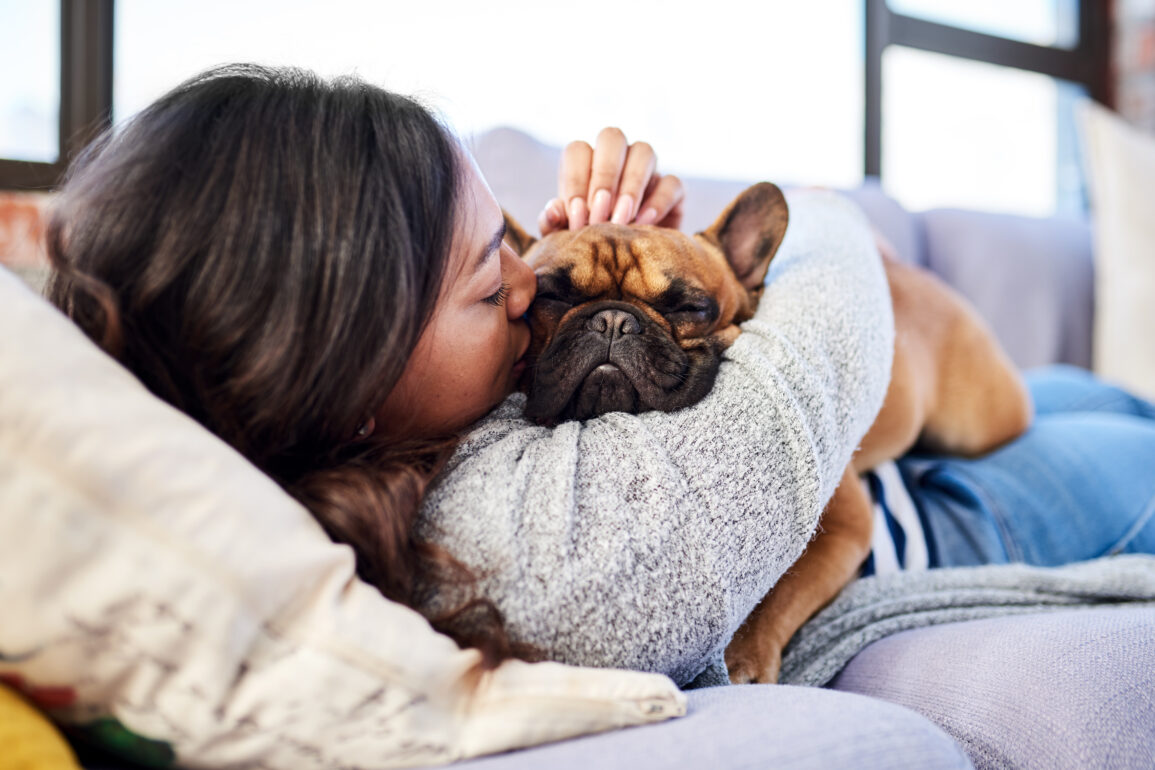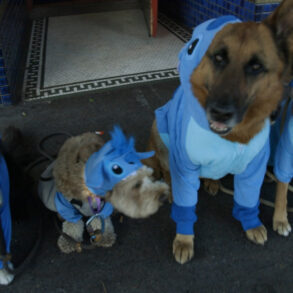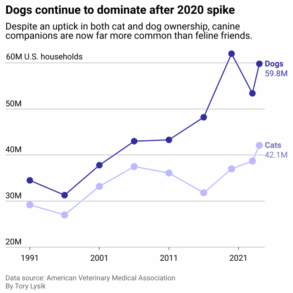If you are dating a dog owner, forget flowers. Bring liver treats. Throw the ball. Do not flinch when licked. For, in 21st-century Britain, it seems it is increasingly the dog, not the human, who determines whether a love affair will flourish.
A survey has found that 42 per cent of people who have pets would end a romantic relationship if their animal disapproved. That rose to 54 per cent among 25 to 34-year-olds, and to 56 per cent for dog owners.
The poll of 2,500 Britons paints a picture of a nation in the grip of animal affection, where humans are often relegated to the doghouse. A third of the respondents said their pet brought them more joy than their partner. More than half said they preferred the company of their animal to a night out with friends.
Younger generations are, it seems, particularly responsive to their pets’ emotional needs. Both Gen Z and millennials rated the happiness of the animals in their care as more important than their careers.
More than half of Gen Z pet owners said their pet brought them more contentment than going on holiday; 47 per cent of dog owners would sacrifice a trip abroad with friends or a partner to book a staycation with their pet instead.
Why such devotion? The report offers clues. Fifty-seven per cent of owners report being happier, and 42 per cent say they are less stressed since acquiring their pets.
Dogs, in particular, appear to act as unwitting personal trainers: 48 per cent of owners say they exercise 3-5 hours more each week than they otherwise would.
• Andrew Cotter: ‘I’d sell my own body parts to look after my dogs’
Psychological bonds also run deep. More than 60 per cent of owners describe a strong link between their pet’s health and their own wellbeing.

The pet supremacy is more pronounced in younger generations
PEOPLE IMAGES/GETTY IMAGES
A growing body of research suggests that many people prefer the companionship of a dog to that of humans. A global survey of 30,000 people across 20 countries found that most cat and dog owners would rather turn to their pet than their partner when feeling stressed.
The psychological value of pet ownership may be greater than is widely acknowledged. A study by Adelina Gschwandtner, of the University of Kent, estimated that the mental health benefits of having a pet were roughly equivalent to those gained from marriage.
A paper published in the journal European Psychologist raised the idea that dogs were increasingly seen as “child surrogates” by owners who choose pets over parenthood, a trend that the authors suggested may be linked to declining birth rates in western nations.
The researchers, from Eotvos Lorand University in Budapest, Hungary, said that humans domesticated dogs to provide practical assistance. However, they suggested that a trend had emerged: “Referring to dogs as children.”
The company that paid for the dating research, Barking Heads, makes pet food. No doubt it has commercial reasons for highlighting Britain’s growing emotional dependence on its pets.
Still, the message seems clear: in the modern romance market, the most consequential judge might not swipe left or right on a dating app, but tilt its head, sniff and walk away. Heed the signals, or prepare to be ditched by a labrador.
This post was originally published on this site be sure to check out more of their content.













































